Historic speech echoes two centuries later: ‘A Light Under the Dome’ recalls the first American woman to speak to a legislative body
| Published: 03-28-2025 3:10 PM |
At a time in which elected officials have tried to lessen or erase certain undesirable periods from America’s history, the play “A Light Under the Dome” aims to shed light on the abolition struggle through the lens of one historic speech in Massachusetts.
That play will have a staged reading at the Unitarian Society of Northampton and Florence on Wednesday, April 2, and Thursday, April 3, at 6:30 p.m., followed by a talkback.
The one-hour show originally debuted with eight performances at the Massachusetts State House last August. It features four abolitionist women, Maria Weston Chapman, Lydia Maria Child, Susan Paul, and Julia Williams, helping their friend Angelina Grimké as she prepares to give a speech about slavery and suffrage at the Massachusetts State House in February 1838, making her the first American woman to speak to a legislative body. Throughout the play, the women, speaking to the audience and each other, commentate Grimké’s speech and analyze its rhetorical strategies, recall encounters with racism and sexism in their own lives, and reassure and encourage her. (Note: Grimké, Chapman, and Child are white; Paul and Williams are Black.)
The show’s script draws from historical research, including Grimké’s own writings. In one scene, which comes from one of Grimké’s pamphlets, she asks white listeners: “Are you willing to enslave your children? You recoil with horror and indignation at such a question. But why, if slavery is no wrong to those upon whom it is imposed? If, as it has been said, slaves are happier than their masters, free from the cares and perplexities of providing for themselves and their families: why not place your children in the way of being supported without your having the trouble to provide for them?”
By the time of the show, Grimké, a white Southerner whose parents were enslavers, had been exiled from the South after writing a letter to William Lloyd Garrison decrying slavery, which Garrison published.
“If I return to South Carolina,” Grimké says in the play, “they will arrest me. They have burned my pamphlets in the streets. I will never see my mother again.”
The show also touches briefly on its subjects’ personal lives. In one scene, Grimké shares a quote from a letter that her future husband, Theodore Weld, also a fervent abolitionist, had written her: “To see you, to hear you, to be with you, to feel the answering of your heart to mine from hour to hour, seems to be a law, a necessity of my higher nature.”
“If a man ever writes words like that to me, I don’t know what I’ll do,” says Paul.
Article continues after...
Yesterday's Most Read Articles
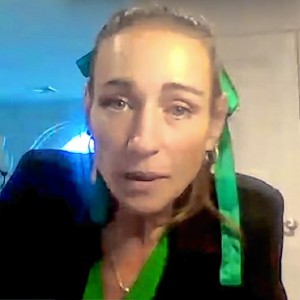 Northampton Housing Authority boss placed on leave
Northampton Housing Authority boss placed on leave
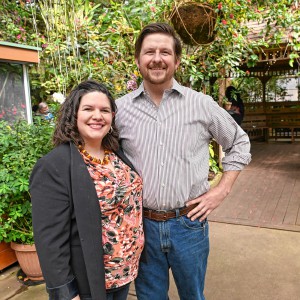 Hopeful buyers emerge for Magic Wings butterfly conservatory in South Deerfield
Hopeful buyers emerge for Magic Wings butterfly conservatory in South Deerfield
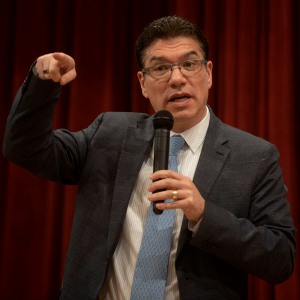 UMass Chancellor Reyes outlines changes amid financial uncertainty under Trump administration
UMass Chancellor Reyes outlines changes amid financial uncertainty under Trump administration
 Ready to roll on roads: Amherst priority list tees up $4.55M to rebuild some of town’s worst stretches
Ready to roll on roads: Amherst priority list tees up $4.55M to rebuild some of town’s worst stretches
 UMass hockey: Minutemen fall to Western Michigan, 2-1, in Fargo Regional final
UMass hockey: Minutemen fall to Western Michigan, 2-1, in Fargo Regional final
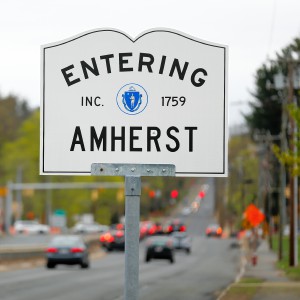 Amherst School Committee OK’s budget with no classroom layoffs, but spending plan is $500K more than town recommends
Amherst School Committee OK’s budget with no classroom layoffs, but spending plan is $500K more than town recommends
“Swoon,” says Chapman. “You’ll swoon.”
In another scene, the women discuss an incident in which Boston carriage drivers refuse to pick up two dozen of Susan Paul’s students, all Black children under the age of 10, who are scheduled to perform for the Anti-Slavery Society in Salem – “ready to sing like angels,” says Williams.
Through alternate arrangements, the children make it to Salem eventually, but even the warm welcome they receive doesn’t erase their unshakable and potent new understanding of racism.
“It never vanishes completely, does it?” says Williams.
“We would be fools to forget,” says Paul.
“We never forget,” says Williams.
To playwright Patrick Gabridge, the modern context of the show’s performance adds to its historical significance. When the show premiered, the 2024 presidential campaigns were underway, and a Black woman was poised to become the next president of the United States. As Gabridge pointed out, Massachusetts not only has a female governor, lieutenant governor, and Senate president, but Northampton’s state senator, state representative, and mayor are all female as well.
“The legacy of them even being able to be present in a public political sphere traces all the way back to the speech in 1838 that we’re talking about here,” he said.
Valley-based actress Myka Plunkett, who plays Lydia Maria Child, said, “Ultimately, I think the most beautiful thing about this piece is that you go in as an audience member expecting to learn a little bit about history, and you realize this is a conversation that could be modernized, and it could be a conversation that was happening today just as much as it was then. It’s not, in fact, historical, but current as an issue.”
Tickets are $15 general admission, $10 for those on fixed incomes, $25 to provide additional programming support, and free for students via historicnorthampton.org/light-under-the-dome.html. The cast includes Emma Friend as Angelina Grimke, Linda Tardif as Maria Weston Chapman, Myka Plunkett as Lydia Maria Child, Imani Bibuld as Susan Paul, and Tahmie Der as Julia Williams.
Carolyn Brown can be reached at cbrown@gazettenet.com.

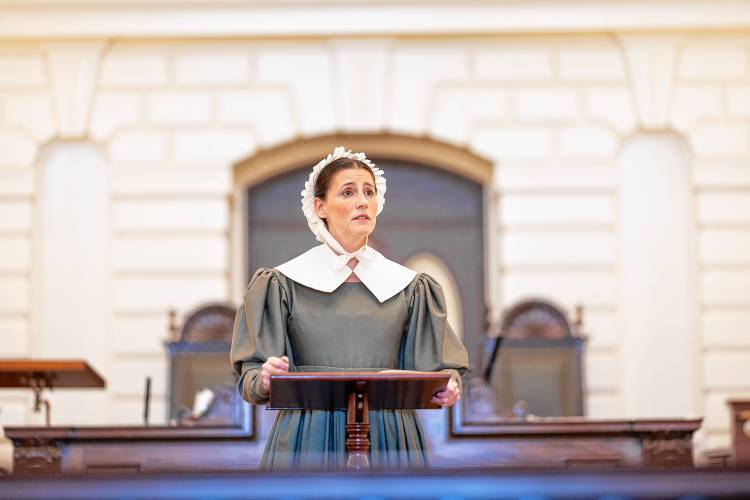
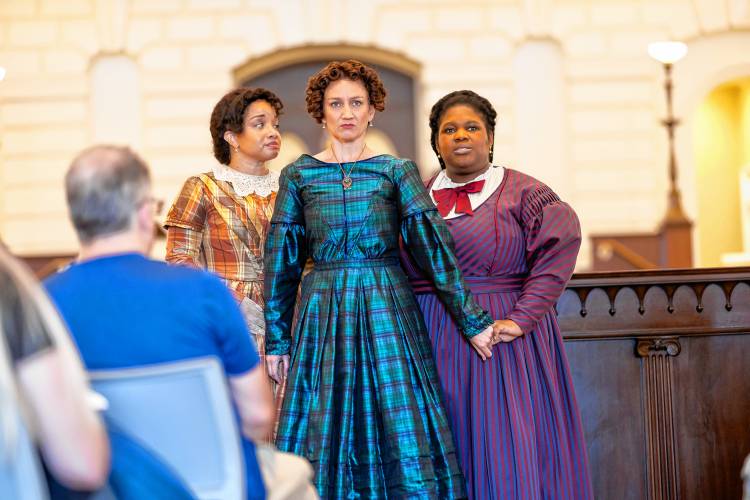





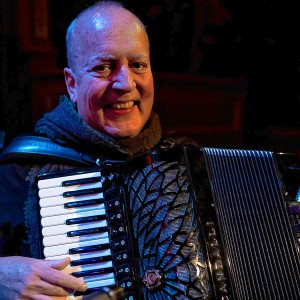 ‘His notes will linger forever’: Remembering Young@Heart accordionist and Springfield College professor Chris Haynes
‘His notes will linger forever’: Remembering Young@Heart accordionist and Springfield College professor Chris Haynes Valley Bounty: And on that farm she had a bit of everything: Little Brook Farm in Sunderland is a labor of love for farmer Kristen Whittle
Valley Bounty: And on that farm she had a bit of everything: Little Brook Farm in Sunderland is a labor of love for farmer Kristen Whittle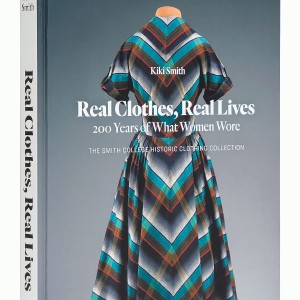 Women’s history told through clothing: Shelburne Falls Area Women’s Club to host ‘Real Clothes, Real Lives: 200 Years of What Women Wore’ author, April 9
Women’s history told through clothing: Shelburne Falls Area Women’s Club to host ‘Real Clothes, Real Lives: 200 Years of What Women Wore’ author, April 9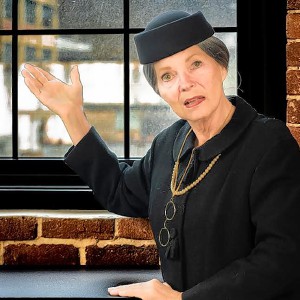 ‘A woman who should be remembered’: New play about the life of Frances Perkins, the brains behind FDR’s New Deal, April 5 and 11
‘A woman who should be remembered’: New play about the life of Frances Perkins, the brains behind FDR’s New Deal, April 5 and 11
